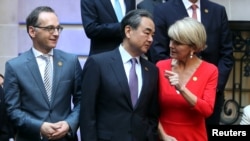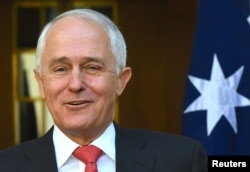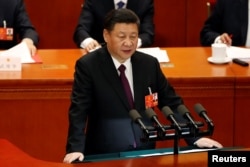A top-secret report has raised concerns that China has attempted to influence Australia's political parties for the past decade. An investigation into the scale of foreign interference in Australia was ordered by Prime Minister Malcolm Turnbull in 2016, leading to new proposed legislation which would ban foreign donations to political candidates.
The Australian media claims the report details widespread Chinese interference in Australia. The Prime Minister Malcolm Turnbull says its contents are classified but the leaked report suggests China has tried to influence every level of government in Australia right down to local councils and attempted to compromise its main political parties.
One of the report's contributors is John Garnaut, a former government advisor who now runs a consultancy company.
He has not publicly commented on the secret document, but did warn about China's influence in Australia when he appeared before the U.S. House Armed Services Committee in March.
“Under the uncompromising leadership of President Xi Jinping, China's activities have become so brazen and so aggressive that we cannot ignore it any longer,” he said.
The top-secret document helped to convince Canberra to bring in new foreign interference laws, which were introduced into federal parliament last year but have yet to be passed. Officials have stressed the legislation does not single out any single country, although analysts believe the measures are mainly aimed at China.
Last week, the director-general of the Australian Security Intelligence Organization, Duncan Lewis, said his country was facing unprecedented interference from overseas.
“Foreign actors covertly attempt to influence and shape the views of members of the Australian public, the Australian media, officials in the Australian government,” he said.
Beijing has previously accused Prime Minister Turnbull of being anti-China, and of poisoning bilateral relations.
Turnbull must tread a delicate diplomatic path. China is Australia’s biggest trading partner, while Canberra’s long-standing military alliance with the United States lies at the core of its national security strategy.






